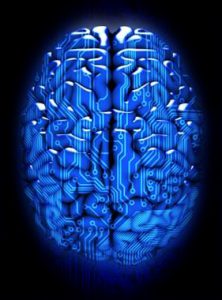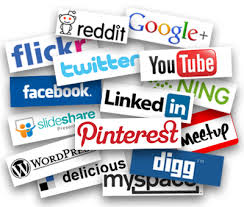Networking in a Distracted World

Image from maggie-jackson.com, where credit was given to Karen Smul
Ivan Misner, the founder of the networking organization BNI, once said, ”Learn how to be here now”. But he says that we are increasingly living and networking in a distracted world.
Former Boston Globe columnist, Maggie Jackson, says “never before have we been so disconnected”. She says, as compared to past generations we are, in fact, less capable of quality analytical thinking. Not only that.
We are more ignorant about many issues and more fragmented as a community. Jackson says that attention is the building block of intimacy, wisdom and relationships. Without it, it would be impossible to function in any meaningful way.
Not so long ago, I had written about the negative effects of multi-tasking. When we force our brain to respond to several stimuli at once, there is clear evidence of “response selection bottleneck”. As a result of constant switch in tasks or focus, the brain has to reboot leading to inefficiencies and performance quality.
Reproduced below, for your benefit, is Ivan Misner’s article that appeared in entrepreneur.com.

Image from BNI.com. Ivan Misner is the Founder of the global networking organization, BNI
We are living in a world that is more connected than ever. There are some definite pitfalls in our hyper-connected world as it intersects with our business relationships and networking. Hyper-connectivity can lead to a state of “continuous partial attention.” A state of continuous partial attention is a state where people are giving partial attention to what they are doing – continuously.
Face-to-Face Networking and Social Media
Continuous partial attention can hamper your relationship-building efforts – not only on a personal level, but also on a professional level. At any event, it is becoming increasingly common to find people who remain connected with mobile devices during the meeting. I see this all the time at networking meetings. Such as at a BNI chapter meeting, a Chamber of Commerce luncheon, or even a gala dinner event.
Continuous partial attention can hamper your efforts to build profitable business relationships with the people you want to connect with. I believe we are paying a price by allowing this constant connectedness affect our real-time relationships.
 The truth is that our brains are not capable of multi-tasking. Brains don’t work like a computer, which can have many programs running simultaneously.
The truth is that our brains are not capable of multi-tasking. Brains don’t work like a computer, which can have many programs running simultaneously.
Our minds have to switch among tasks. Some of us can task-switch extremely quickly, seemingly multi-tasking, but we are not actually multi-tasking. Others of us task-switch with a little more difficulty, making it extremely challenging to really pay sustained attention to anything when we try to multi-task
Working While Distracted
Most of us work at our computers, laptops or tablets with notifications switched on. Email, Facebook, Twitter, Instagram, Google+, LinkedIn. Pinging, chirping and whistling as notifications fly across your screen shouting, “Look at me! Someone retweeted you! Someone wants to be your Friend!”
Even people who do not have ADD are working in a state of attention deficit due to the distraction all these notifications cause! These are the people in the “Prayer Neck” posture – hunched over looking down at their hands while holding their mobile device.
It is very easy to lose track of whom you have just followed up with. You end up sending your follow-up email twice or reference something you were discussing with someone else. Worse yet, send an email to the wrong person entirely. (Who hasn’t done that?) Continuous partial attention keeps you from being alert, attentive and focused and can hamper your post-event follow up not to mention your day to day activities.
 Be honest. Whom do you greet first when you get up in the morning — your spouse, kids, the dog OR your virtual community? Do you reach for your smartphone before you even throw your legs out of bed to get up? I have found myself doing that. I used to never even turn my mobile phone on until after I was up, had exercised, showered and had my breakfast. I think social media is great. I use it regularly to stay in touch and build relationships.
Be honest. Whom do you greet first when you get up in the morning — your spouse, kids, the dog OR your virtual community? Do you reach for your smartphone before you even throw your legs out of bed to get up? I have found myself doing that. I used to never even turn my mobile phone on until after I was up, had exercised, showered and had my breakfast. I think social media is great. I use it regularly to stay in touch and build relationships.
But knowing when to focus on the face-to-face interactions and put notifications on Do Not Disturb is also extremely important in this ever expanding digital age.

